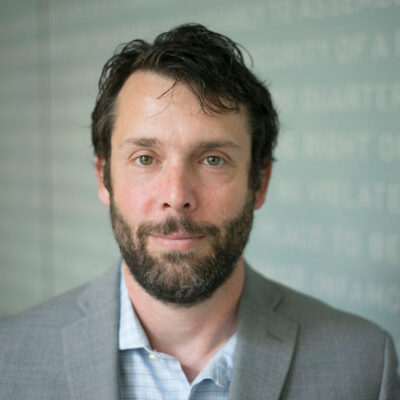If the people are going to hold their government accountable, they need to know what that government is actually doing. A big part of the recent public outcry over policing reflects the concern that when police violate the law, or shoot someone, the public doesn’t get the full story.
Many proposals for police reform — from body cameras to data collection on traffic and pedestrian stops to mandatory reporting of uses of force — boil down to transparency by helping the public understand what police are actually doing. So it’s hardly surprising that when the ACLU of California released a poll asking California voters about police transparency, their answer was crystal clear: they want more.
Transparency is a basic principle of democracy. But California has one of the nation’s most restrictive laws for public access to information about police officer misconduct. State law bars disclosure of all police “personnel records,” which means the public can’t even find out when an officer’s own agency has determined that officer engaged in serious misconduct.
What’s more, courts and police agencies have interpreted that provision broadly to cut off public access to nearly all information that might be used in personnel decisions. That means that even investigations into shootings or high-profile incidents are kept secret because they might result in discipline. When police kill a civilian, it’s a big deal. But with such secrecy, family members and communities of those killed by police don’t get a full explanation of what the department thinks happened, and the public can’t judge whether its police department’s policies on use of force are appropriate or their investigations thorough and unbiased.
Our poll shows that state law is out of step with Californians’ expectations. Almost four in five California voters (79%) say that where police have engaged in misconduct, the public should have access to the findings and conclusions of investigations into that misconduct. And nearly two-thirds of likely voters (64%) support public access to investigation reports in cases that simply allege officer misconduct. That support cuts across all ethnic divisions and political affiliations. That’s right — even in today’s partisan politics, Republicans, Democrats and independent voters agree on public access.
If there’s such broad agreement, this should be easy. But a moderate reform to keep some hearings on police discipline open was blocked by police unions in 2007. At the time, opponents suggested that allowing open hearings to continue would threaten officers’ lives. But they pointed to no incident in the decades when hearings were open when officers were placed at risk because of an open hearing.
And closing information about misconduct doesn’t prevent access to information about officers anyway. State law requires that officers wear a nameplate and a badge number. Officers who testify to put a criminal in jail must give their names in court. And the names of officers involved in shootings must be made public, even while the department’s investigation into the shooting, findings and discipline are kept secret.
But those facts didn’t stop legislators from letting the bill die. The bill’s author, former State Senator Gloria Romero, recently recounted the bill’s failure to the Sacramento Bee, saying “The Legislature buckled. . . , It was really a profile in lack of courage all the way around. ... Now we have a secret police.”
Police officers are not only public servants, they’re public servants to whom we give enormous authority. If the public wants to know whether a doctor or lawyer has been found to have engaged in professional violations, they can get that information on public websites. The public can even get information about allegations of misconduct against public employees other than peace officers, so long as there is reasonable cause to believe the complaint is well-founded.
We should have access to the same information about peace officers that we have about other public servants. Sacramento needs to act to give Californians access to police records, or Californians will act for themselves.
Peter Bibring is senior staff attorney and director of police practices at the ACLU of Southern California.

